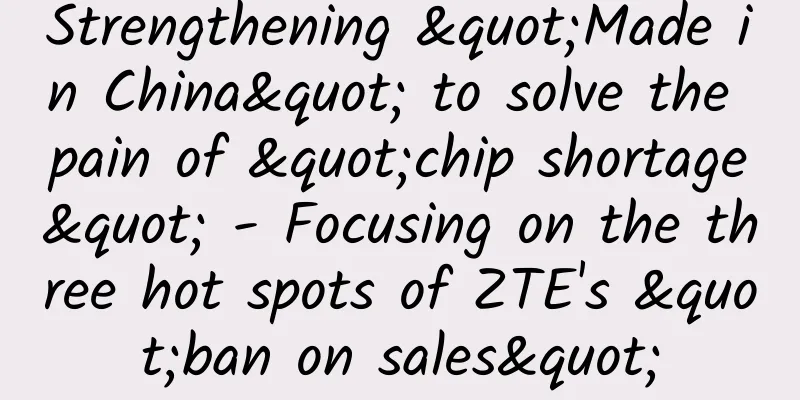The three major operators have been delisted. Do those outstanding shares have to be repurchased?

|
The hottest news during the New Year's Day was that China's three major operators, China Mobile, China Unicom, and China Telecom, were asked to delist from a certain exchange. Apart from expressing our indignation and strong condemnation, we do not want to say much about this matter, so we will omit many words. I see everyone is talking about whether the three major operators will be forced to repurchase their tradable shares after being delisted. However, according to the market value of tradable shares in the United States, the repurchase will cost hundreds of billions of US dollars, which will cost us a lot of money! I have made an analysis based on my limited knowledge and have come to a superficial conclusion: after the three major operators are delisted, they should not need to repurchase the outstanding shares, but should provide new trading methods. I hope everyone will throw bricks at me. This is because the stocks issued by the three major operators in the United States are not real stocks, but something called ADR, which is called "American Depository Receipt" in Chinese. According to US law, only companies registered in the United States can directly issue stocks, while companies not registered in the United States can only raise funds through the issuance of ADRs. Chinese companies listed in the United States all issue ADRs, including Alibaba, JD.com, and the three major operators. The precise definition of ADR is "a tradable financial instrument issued by a bank, representing the public offering of securities by a non-US company and traded in the US financial market". The specific procedure is that if a US bank needs to issue an ADR of a Chinese company, it will first purchase the shares of the foreign company through a foreign securities broker, then accept the custody of the shares through its branch established in a foreign country, and package a certain number of shares into a depositary receipt (each ADR represents 1 share or multiple shares or a fraction of a share), and then issue the ADR on a US stock exchange or over-the-counter market (OTC) in accordance with the requirements of the US Securities and Exchange Commission. After the ADRs of Chinese companies are issued on the US exchange, US investors can purchase ADRs through US securities brokers. To facilitate the purchase of US investors, ADRs are priced in US dollars and dividends are paid in US dollars. At the beginning, the three major operators were listed in both Hong Kong and the United States. The order of operations should be to first issue H shares in Hong Kong, and then issue ADRs in the United States based on the H shares issued in Hong Kong. The delisting order means that US investors who hold the ADRs of the three major operators will face the problem of what to do with their tradable shares. The first option for investors is to sell their ADRs during the delisting transition period from January 7 to 11. Since time is too short, many people will certainly not be able to sell their shares. Can they ask the major shareholders to buy back their shares? Because this is not a privatization initiated by the major shareholders, the major shareholders of the three major operators have no legal obligation to buy back. However, we will not allow the stocks held by American investors to lose liquidity and exit mechanisms. According to international practice, depository institutions can arrange for investors to make "stock conversions." That is, the depository institution can exchange the shares held by investors holding the ADRs of the three major operators for stocks traded in another market. Usually, the depository institution will arrange its own brokerage company to seek share conversion registration in another market together with the issuer of ADRs, and arrange for the new brokerage company to arrange share registration and trading. As mentioned before, the three major operators were listed in Hong Kong first. Therefore, when issuing ADRs, the American depositary management agency bought a large number of Hong Kong shares of the three companies. Now we only need to discuss with the three major operators and seek the opinion of the Hong Kong Stock Exchange to determine whether the ADRs can be directly converted into the Hong Kong common stocks of the three major operators for trading. Of course, the US depository institutions and their branches in Hong Kong must first clarify whether the stocks corresponding to these ADRs are tradable stocks in Hong Kong stocks. If they are tradable stocks, the conversion operation is very direct: if the stocks held by the depository securities firm are not tradable stocks in Hong Kong stocks, they should be equivalent to non-tradable stocks for listing, and the Hong Kong Stock Exchange and the listing management department should also be approved. Personally, I think that considering the protection of the rights and interests of international investors and the reputation of domestic companies, solving the listing and circulation of stocks corresponding to ADRs held by US investors should not be a big problem. After the above issues are resolved, the US ADR broker will inform US investors of the contact number of their Hong Kong depository institution, and then they need to open a stock account in Hong Kong, and the Hong Kong broker will contact the Hong Kong depository institution, and then the depository institution will directly transfer the number of shares corresponding to the US investor's ADR to the personal account of the broker. Then, US investors can buy and sell Hong Kong stocks of the three major operators. During this process, individual investors in the United States must keep their phones open and cooperate with various prescribed actions at any time, because there are time windows and deadlines for doing these things. They must complete the transfer of your common stock by the designated brokerage company contacting the local depository institution in another trading market within the specified time. During the whole process, various institutions will charge certain fees. If someone fails to complete the above tasks within the specified time, they can only wait for the depository institution to exercise the rights on their behalf, buy the common shares corresponding to the individual ADS in the Hong Kong market, and then return the money to the investor. However, this may involve Hong Kong taxes. Therefore, after the three major operators are delisted, they do not need to repurchase the circulating shares in the hands of investors, but can solve their exit and liquidity needs by converting them into their common shares in Hong Kong. Of course, if we think that the current share prices of the three major operators on the New York Stock Exchange are extremely undervalued, it is not ruled out that investors can exit through targeted repurchases, which is equivalent to copying the bottom. The key is to see whether this business is cost-effective. If a targeted repurchase is made at a low price, and then the A-shares can be issued at a premium, the value of state-owned assets can be realized by buying low and selling high, and the fundraising for the repurchase will definitely not be a problem. Now, what we lack the least is money! |
>>: Will edge computing replace cloud computing? Has the strongest dark horse in the 5G era emerged?
Recommend
Huawei releases "Premium Private Line 2.0 & Intelligent Distributed Access" solution
[Beijing, China, October 15] In September this ye...
Friendhosting Christmas/New Year promotion, 40% off all VPS hosts, unlimited traffic in multiple computer rooms
Friendhosting launched a promotion for Christmas ...
With the advent of 5G, will the future of commercial Wi-Fi be a setback or a step forward?
Entering the Internet age, the Internet allows pe...
Do you really understand the network layer model?
I went for interviews throughout the summer and i...
Can 20M Wi-Fi be used as 100M broadband? Let me share some knowledge
Sometimes I hear friends ask such questions: My r...
Juniper Networks Launches New Data Center Interconnect Solution to Accelerate Cloud Service Delivery
Juniper Networks, an industry leader in providing...
Common router configuration NAT/UPNP/DMZ method?
The methods for configuring NAT (Network Address ...
GigsGigsCloud: Los Angeles CN2 GIA+CUVIP line KVM quarterly payment starts from US$18
GigsGigsCloud is a Malaysian hosting company foun...
[Black Friday] Sharktech: 50% off on all cloud products, 10Gbps unlimited traffic server $349/month-2*Gold 6148/128G/2TB NVMe/Los Angeles and other data centers
Sharktech also released a promotion during this y...
How do these countries plan their 5G breakthrough amid the COVID-19 crisis?
5G is a new technology field that all countries a...
Regarding "computing power", this article is worth reading
In today’s article, let’s talk about computing po...
V5.NET is 30% off in July, and monthly payment starts from HK$525 for new Korean servers
V5.NET has launched new products. This month, the...
The impact of hybrid IT environments on NetOps professionals
Hybrid work models are driving a major shift in n...
The emergence of Wi-Fi HaLow promotes IoT applications and innovation
Few emerging technologies have the transformative...
How many hurdles will computing power development have to overcome in the future?
At present, the digital economy is entering a new...









